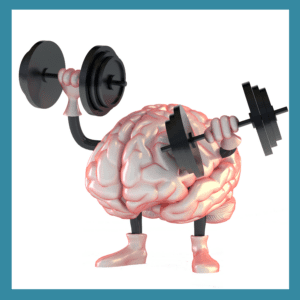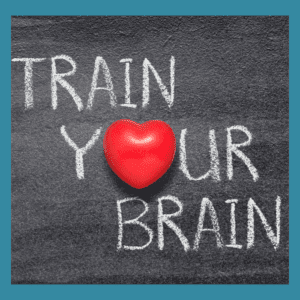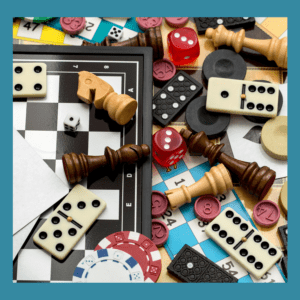Enhancing Cognitive Health: The Benefits of Brain Games for Seniors with Dementia
 Submitted by Mary Anne Roberto,
Submitted by Mary Anne Roberto,
The Co-founder of
Always Home Connected
 Activities Not Only Provide Mental Stimulation But Also Offer Emotional And Social Benefits.
Activities Not Only Provide Mental Stimulation But Also Offer Emotional And Social Benefits.
Dementia, a condition characterized by a decline in cognitive function, affects millions of seniors worldwide. One of the most effective ways to support cognitive health and enhance the quality of life for individuals with dementia is through engaging in brain games.
These activities not only provide mental stimulation but also offer emotional and social benefits. Let’s explore the importance of brain games for seniors with dementia and how they can make a significant difference in their lives.
Cognitive Stimulation
 Brain games are designed to challenge the mind and promote cognitive function. Activities such as puzzles, memory games, and word searches stimulate various parts of the brain, helping to maintain and even improve cognitive abilities.
Brain games are designed to challenge the mind and promote cognitive function. Activities such as puzzles, memory games, and word searches stimulate various parts of the brain, helping to maintain and even improve cognitive abilities.
For individuals with dementia, engaging in these activities can slow the progression of cognitive decline by keeping the brain active and engaged. Research has shown that cognitive stimulation can enhance memory, attention, and problem-solving skills, which are crucial for maintaining independence and daily functioning.
Emotional Well-being
Dementia often comes with emotional challenges, including anxiety, depression, and frustration. Brain games can provide a sense of accomplishment and joy, boosting self-esteem and emotional well-being. Completing a puzzle or solving a challenging problem can give individuals a sense of achievement, promoting positive emotions and reducing stress. These  activities offer a constructive way to channel energy and focus, helping to alleviate feelings of boredom and restlessness that are common in dementia patients.
activities offer a constructive way to channel energy and focus, helping to alleviate feelings of boredom and restlessness that are common in dementia patients.
Social Interaction
Many brain games can be enjoyed in a group setting, encouraging social interaction and strengthening relationships. Group activities such as board games, card games, and trivia quizzes provide opportunities for seniors to connect with others, fostering a sense of community and belonging.
Social interaction is vital for mental health, as it can reduce feelings of isolation and loneliness, which are prevalent among seniors with dementia. Engaging in these activities with family members, friends, or caregivers can also strengthen bonds and create meaningful experiences.
Routine and Structure
 Incorporating brain games into the daily routine of individuals with dementia can provide a sense of structure and predictability, which is beneficial for their overall well-being. Establishing a regular schedule for these activities helps create a familiar and comforting environment. Consistency and routine can reduce anxiety and confusion, making daily life more manageable for dementia patients.
Incorporating brain games into the daily routine of individuals with dementia can provide a sense of structure and predictability, which is beneficial for their overall well-being. Establishing a regular schedule for these activities helps create a familiar and comforting environment. Consistency and routine can reduce anxiety and confusion, making daily life more manageable for dementia patients.
Types of Brain Games for Seniors with Dementia
- Puzzles:
Jigsaw puzzles, Sudoku, and crossword puzzles are excellent for enhancing problem-solving skills and cognitive function. They require concentration and can be tailored to different difficulty levels based on the individual’s abilities.
- Memory Games:
Games that involve matching pairs or recalling information, such as card-matching games or  memory recall activities, can improve short-term memory and attention.
memory recall activities, can improve short-term memory and attention.
- Word Games:
Word searches, anagrams, and Scrabble stimulate language skills and vocabulary. These games are particularly beneficial for maintaining verbal communication abilities.
- Number Games:
Activities like Bingo or simple arithmetic challenges can sharpen numerical skills and promote quick thinking.
- Board Games and Card Games:
Games like chess, checkers, and various card games provide strategic challenges and encourage social interaction.
Interactive apps and computer-based games designed for seniors offer a modern approach to cognitive stimulation. These can include virtual puzzles, brain training programs, and digital versions of classic games.
Conclusion
Brain games play a crucial role in supporting the cognitive, emotional, and social well-being of seniors with dementia. By incorporating these activities into their daily lives, we can help improve their quality of life, slow cognitive decline, and foster a sense of joy and connection.
Whether through traditional puzzles and board games or modern digital apps, brain games offer a valuable and enjoyable way to engage and stimulate the minds of individuals with dementia.
Submitted by Mary Anne Roberto,
The Co-founder of Always Home Connected
About The Author
 Mary Anne Roberto, the co-founder of Always Home Connected is a dedicated CNA and a Certified Positive Approach To Care Consultant (Teepa Snow), specializing in dementia care. Her goal is to create awareness about those experiencing cognitive changes and to provide caregivers with resources and tools that are necessary to help alleviate some of the challenges caregivers face on a day-to-day basis.
Mary Anne Roberto, the co-founder of Always Home Connected is a dedicated CNA and a Certified Positive Approach To Care Consultant (Teepa Snow), specializing in dementia care. Her goal is to create awareness about those experiencing cognitive changes and to provide caregivers with resources and tools that are necessary to help alleviate some of the challenges caregivers face on a day-to-day basis.

 Activities Not Only Provide Mental Stimulation But Also Offer Emotional And Social Benefits.
Activities Not Only Provide Mental Stimulation But Also Offer Emotional And Social Benefits. 